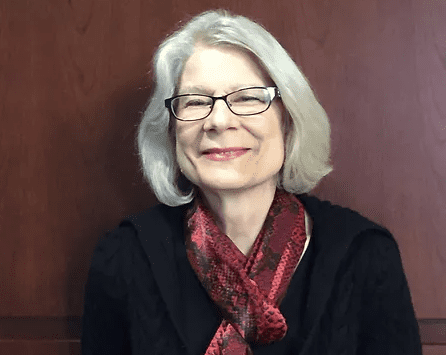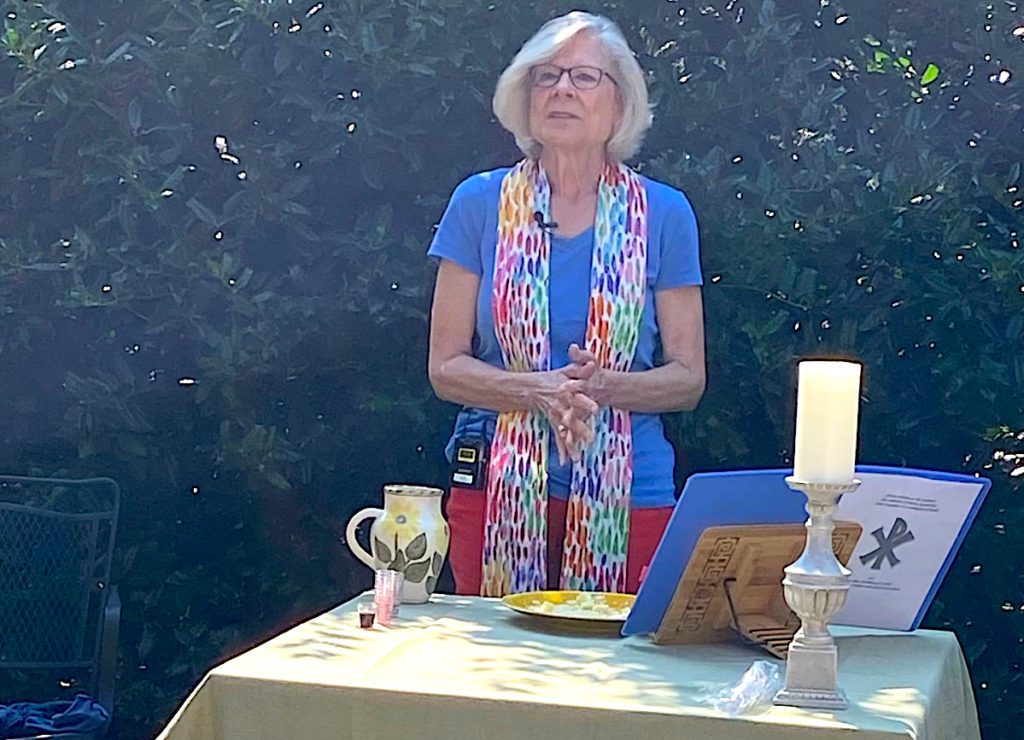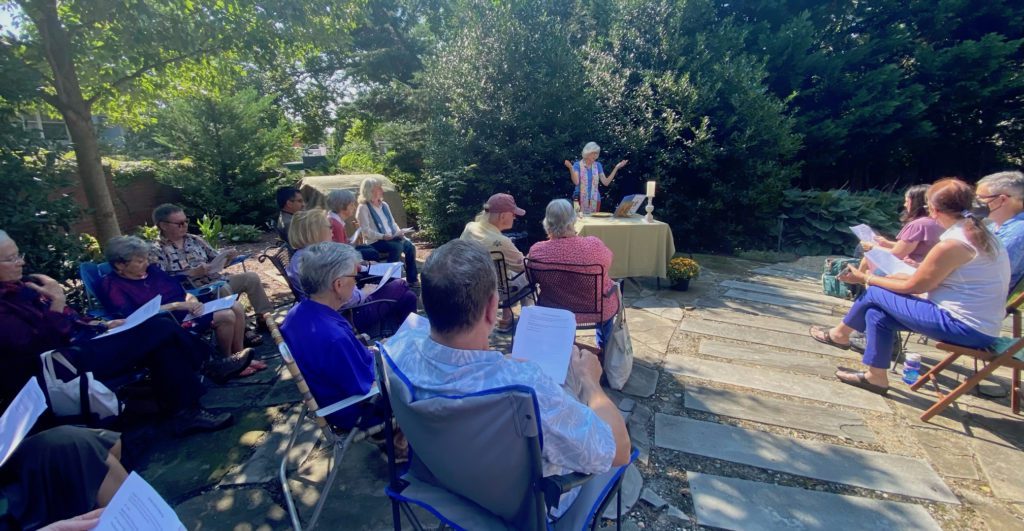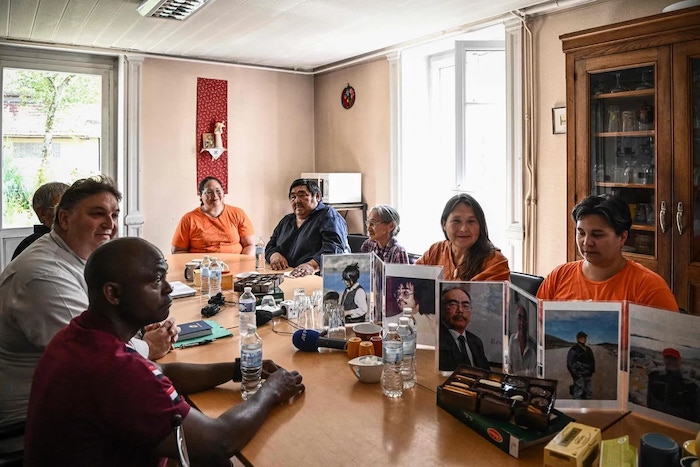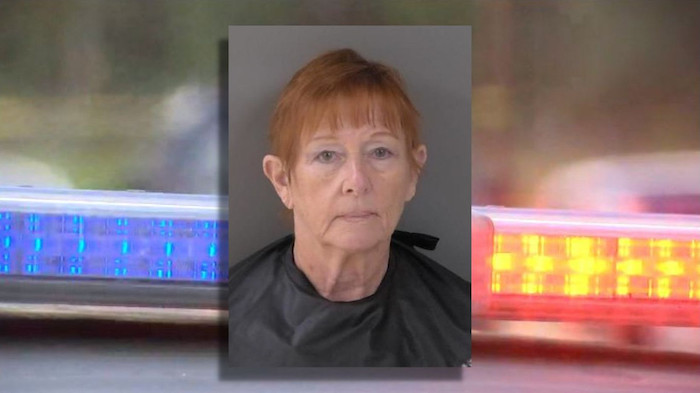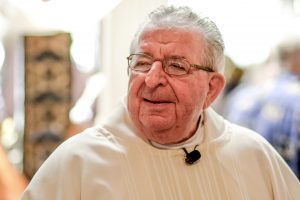Rev. Mpho Tutu van Furth, an Episcopal priest who is married to a woman, said the funeral of her godfather was moved to his garden to allow her to participate.
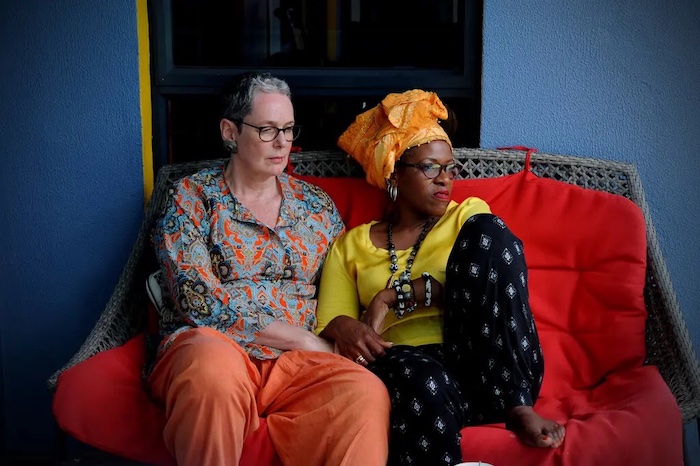
The daughter of the late Archbishop Desmond Tutu had wanted to honor her godfather’s personal wish: that she officiate his funeral in England after he died last week.
But the Church of England stopped the Rev. Mpho Tutu van Furth, a priest ordained in the United States, from doing so this week because she is married to a woman, she said.
“I’m stunned by the lack of compassion,” said Ms. Tutu van Furth in a phone interview from Shropshire, in central England, on Friday, calling the decision to bar her from officiating at the funeral of her godfather, Martin Kenyon, 92, unkind. “You can’t speak a message of welcome and love and live a message of exclusion,” she said, of the church’s teaching.
Mr. Kenyon was a longtime friend of Archbishop Tutu, a powerful force in the anti-apartheid movement in South Africa and an early, outspoken critic of the Anglican Communion’s stance on gay rights. The archbishop was also a godfather to Mr. Kenyon’s daughter.
The incident has put a spotlight on the longtime divide within the global Anglican Communion over whether to accept same-sex marriages and ordain openly gay priests and bishops. The Church of England and the Episcopal Church are tied together in the global Anglican Communion, which represents about 85 million worshipers around the world.
But the communion has been slowly fracturing for years as it has debated policies toward clergy and worshipers in same-sex relationships and marriages. The Episcopal Church has taken a stance in favor of acceptance of gay clergy and members, starting with the consecration of Bishop Gene Robinson, an openly gay priest, in New Hampshire in 2003.
The Church of England, however, has said that under its religious laws, while it permits same-sex civil partnerships, it does not support same-sex marriage because it would go against its teachings. Gay clergy are expected to remain celibate, and those in same-sex marriages are not permitted to be ordained.
Rights campaigners and some religious leaders have condemned the incident and the church’s policies as homophobic, discriminatory and at odds with the religion’s message.
Ms. Tutu van Furth said that she was informed by local representatives of the church that while she could sit in the congregation during the ceremony, she would not be permitted to deliver the eulogy, say prayers or perform readings at the funeral. She said she understood why local officials had conveyed the message, but said the way church authorities had handled it was “not right.”

The local diocese of Hereford, in which the funeral was held, acknowledged it was “a difficult situation,” adding that they had followed advice given in line with published guidance from the church’s senior leadership — which said that getting married to someone of the same sex was not “appropriate contact” and would “clearly be at variance with the teaching of the Church of England.”
“The Church of England believes that all people are made in the image of God and must be cherished for who they are,” a spokesman for the church said in a statement. The church was in the process of “learning and listening about questions of identity, sexuality, relationships and marriage,” the statement said, which had caused “deep and painful divisions.”
Bishops are expected to formally publish recommendations on a way forward on L.G.B.T.Q. policy among other topics in February, when the General Synod, the national assembly of the Church of England, will meet.
“There are people of every age who need the church in the times of hardship and pain and loss,” Ms. Tutu van Furth said, adding that the decision had also upset the family of Mr. Kenyon. “This is supposed to be the place for people to go who have nowhere else to go.”
To honor his wishes and allow her involvement, Ms. Tutu van Furth said that the funeral — which she described as prayerful and joyful — was ultimately held on Thursday not in a church but in the garden of Mr. Kenyon’s home in Shropshire.
Mr. Kenyon and Archbishop Desmond Tutu grew close while the two lived in London in the 1960s as Archbishop Tutu studied theology in King’s College. (Mr. Kenyon also gained a bit of fame for his responses to being one of the first people in Britain to receive a Covid vaccine in 2020, telling The New York Times he was looking forward to being embraced by his grandchildren.) The archbishop was a supporter of gay rights, telling the BBC in 2007: “If God, as they say, is homophobic, I wouldn’t worship that God.”

Ms. Tutu van Furth has spoken previously about her painful experiences with the church after she married Marceline van Furth, a Dutch academic specializing in global children’s health. That forced her to hand back her license to officiate as a priest in the Anglican Communion’s province in Southern Africa, a decision, she said at the time, that felt like it “stripped away” a part of her. Based in the Netherlands, Ms. Tutu van Furth now preaches at a church in Amsterdam.
For Jayne Ozanne, an advocate for gay rights in the church and a member of the Church of England’s General Synod, its legislative body, the reverend’s experience reaffirmed that the Church of England was “institutionally homophobic.”
“It’s a cruel, crass and hypocritical decision,” she said, adding that church leaders had kept silent for too long on L.G.B.T.Q. rights.
“We are investing millions in mission and evangelism without getting the core basics right of a church who serves all and shows the unconditional love” of God for England, she added.
Complete Article ↪HERE↩!

